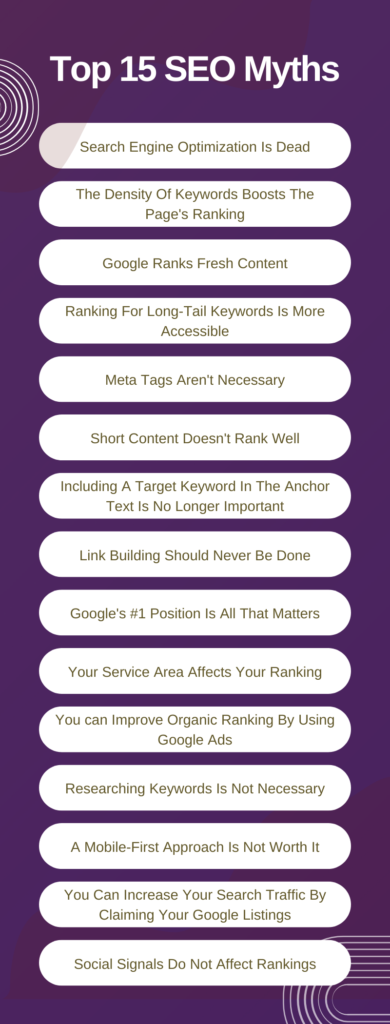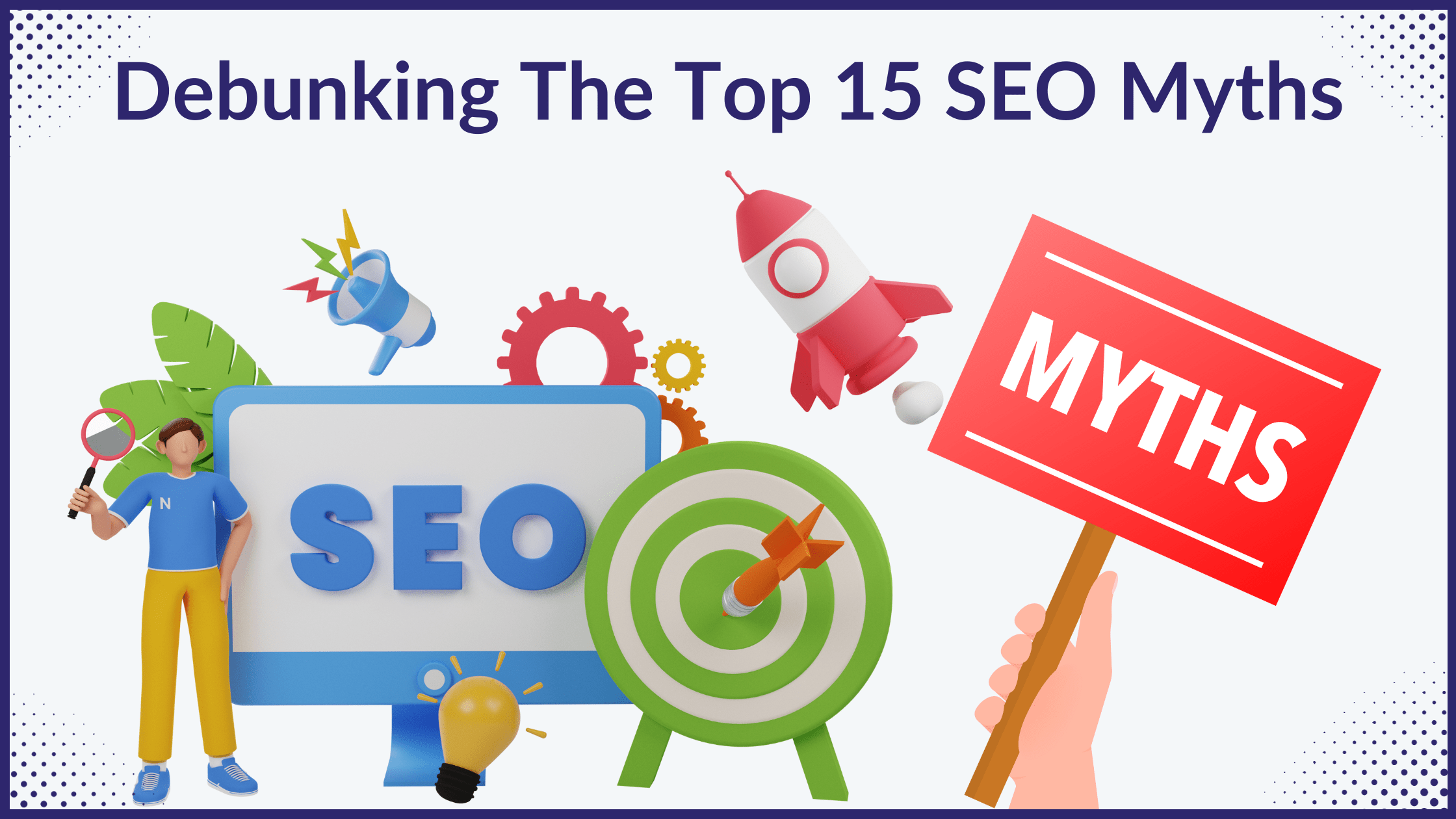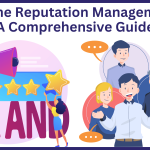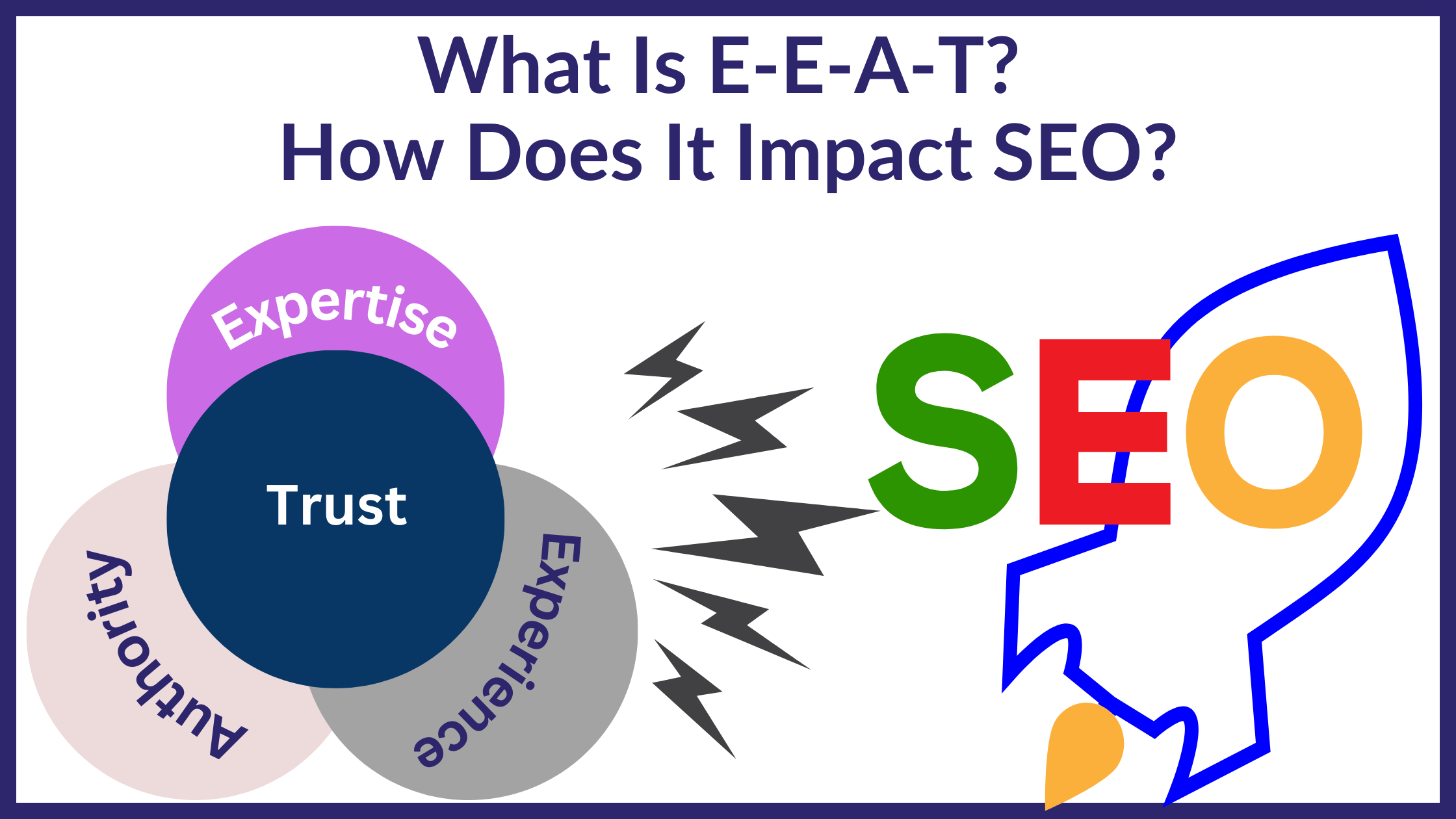There is no necessity to look too far for terrible SEO advice. Businesses must continuously defend against inadequate, irrelevant, and downright inaccurate ranking methods in today’s search ecosystem and know about the right SEO services in India.
Knowing what not to do is vital to having a successful, positive strategy for boosting organic search traffic.
The article will provide some thoughts on the most common SEO misconceptions. You’ve probably come across them if you have been optimizing your website for a while. Recognizing them for what they are will provide you with a significant competitive advantage in increasing organic traffic to your website.
How to Recognize And Disperse SEO Myths?
Your team will be protected from falling for typical SEO myths by following a few simple measures.
When creating an ongoing SEO plan, bear the following advice in mind:
- Choose your information sources wisely. Content from seasoned experts and industry insiders may be found in publications like Search Engine Journal and Search Engine Land. It’s also wise to stay current with more specialised blogs, such as SEO by the Sea. As a final reminder of the most recent developments, don’t forget about your trusted twice-monthly report from BrightEdge.
- Observe the official channels. It is untrue that search engines keep their algorithmic workings a secret. On Google Search Central, its podcast Off the Record, and The Keyword, the company’s main blog, Google frequently updated web administrators.
- Continue testing; internal testing is vital. You may monitor changes in your rankings over time and link them to new optimization techniques using tools like Data Cube and Site Report from BrightEdge.
The SEO Myths:


1. Search Engine Optimization Is Dead
A very overused clickbait headline in the industry is “SEO is dead.” Another version of this myth goes something like “simply focus on developing outstanding content” or “SEO is no longer important.” it’s a tried-and-true hook for attracting interest. Yet, with 74 percent of companies spending on SEO in 2021, it couldn’t be further from the truth.
To understand more about the SEO services, read this blog: benefits of SEO services.
The exact beginnings of this myth are unknown. Still, it’s most likely the result of two misconceptions: that search algorithms are black boxes about which little can be known and that it’s impossible to compete with high-authority sites. Both of these assumptions are incorrect.
Bing and Google, for example, provide considerable guidance for web administrators. And Google Search Advocate John Mueller has stated publicly that while competing with more significant sites may be difficult; it is not impossible.
2. The Density Of Keywords Boosts The Page’s Ranking
On the one hand, keywords are essential. It’s important to use them thoroughly and frequently. Pursuing a precise percentage of keywords in a page’s text, on the other hand, does not. It can be dangerous in extreme circumstances.
Even though you might have a few keywords you want to rank for, search engines won’t give you any points for how frequently you can use those keywords in your content. Keyword stuffing, which involves repeatedly using the same terms on your webpage, can potentially result in search engine penalties.
Instead, a few carefully chosen and strategically placed keywords can do wonders. These will also be quickly discovered by search engine algorithms. In this situation, keyword research is still crucial to both your digital marketing strategy and content marketing plan.
You will benefit from being aware of what people are looking for as they move through the buying process and which words or phrases they use most frequently. To increase the effectiveness of your website, find the keywords that are popular with your intended demographic and direct more relevant traffic there.
3. Google Ranks Fresh Content
Google considers your content’s freshness when determining its quality and ranking. But it’s not like you must constantly produce fresh material; your already published content can also aid your ranking. To maintain the freshness of your existing material and reap the rewards of content freshness, you need to update it.
Republish your present content to increase its potency.
The query has an impact on the ranking factor of freshness. It depends on whether the quality of the content is impacted by how recent it is. Because SEO is constantly changing, freshness is essential for many SEO-related queries. As a result, specific questions are more critical as compared to others.
4. Ranking For Long-Tail Keywords Is More Accessible
Most people believe long-tail keywords are made up of many words; however, this isn’t true. Low volume individual searches are indicative of long-tail keywords. No matter how many words you use, it doesn’t matter.
Because Google generally ranks the same results for the core keyword and these long-tail keywords, it’s typically not any simpler to rank for them. To be fair, one form of a long-tail keyword is more difficult to rank for. These are what we refer to as “topical long-tails.”
5. Meta Tags Aren’t Necessary
You’ll come across a wide range of viewpoints when looking for information on using meta descriptions and title tags appropriately. Some claim that meta tags are redundant, while others insist on a specific keyword density.
According to John Mueller, Google uses title tags to determine what a page is about. However, there is no foundation for claiming that they are unimportant. On the other hand, Google said in 2009 that Meta Keywords are no longer a ranking indication, despite the fact that different search engines throughout the world may still consider them a factor.
The meta tags are what people see when they first visit your website on a SERP. Users will be more likely to visit your website if the meta description is intriguing. They make sure search engines are aware of the subject matter of your material so they can display the website in the relevant results. The second line of the search engine results page, the Meta Description Tag, is an important component of a Web page to optimise. In essence, it gives the visitor a concise overview of your website and establishes their potential.
6. Short Content Doesn’t Rank Well
Have you ever used a search engine to ask a simple question like “How long does it take to roast a potato?” only to be faced with a wall of 12,000 pages of primarily unrelated data? Not only has Google stated that length is secondary to quality, but it may also begin intentionally depreciating sites with excessive “fluff” content in the near future.
Publishing long-form material is sometimes the most effective approach to appeal to the searcher’s intent. In certain circumstances, it isn’t. Google emphasizes EAT (Expertise, Authority, and Trust) characteristics and demonstrates a significant shift toward user pleasure and experience as a main ranking indication. The content length should be chosen by the reader’s utility, not by a random word count.
7. Including A Target Keyword In The Anchor Text Is No Longer Important
Anchor text is the name for the clickable text in a hyperlink (e.g., an organization). The anchor text inside the bracket is “An Organization.” Users are taken to the blog when they click on the term. Should you utilize keywords in your anchor text when building links?
Many industry analysts feel that anchor text will always be a ranking feature, regardless of what adjustments Google makes in the future. Every algorithm update or tweak aims to make it easier for searchers to locate the correct sites with the information they require in a user-friendly manner.
Over-optimization may result in a Google penalty. Search engines have caught on to this ruse and are penalizing you as a result.
There is, however, a minor modification now. Contrarily, contextual links, like those found in your guest posts, have 5–10 times the ranking value of your conventional author profile link. Excessive usage of keyword-rich anchor text, on the other hand, will harm your site’s ranks. Cross-linking with rich anchor text is also dangerous, so stay away from it.
However, it isn’t correct to argue that keyword-rich anchor text will no longer be necessary for search engine rankings. In other words, it is a myth. You must make sure that your brand, URL, generic keywords, primary and secondary keywords, meta keyword phrases and all of these are employed as anchor texts. Alter your strategy.
8. Link Building Should Never Be Done
Particularly link building has been a contentious topic for years. Algorithms were initially used to track links to establish a site’s authority. Every link acted as a vote, with connections from high-authority sites having more weight. This method is still used to determine how websites and individual pages are ranked.
Over time, people have discovered how to benefit from this technique. As a result, Google is constantly looking out for suspicious link-building practices, such as link farms, directory websites, and other spammy signals.
This isn’t to say that all link-building should be avoided. The importance of links has not diminished. Google advises that the vast majority of links on a website come from natural sources, but it also states that a small number of guest blogging and link exchanges are OK. After all, it is undeniable that high-quality connections have a beneficial impact on rankings.
9. Google’s #1 Position Is All That Matters
Numerous business owners think SEO is all about rankings and that the first page of results is the only important one. But in reality, SEO is primarily about the bottom line. A more prominent position is beneficial, as the first three to four search results often receive the majority of clicks. However, location by itself won’t generate clicks, conversions, or money.
Delivering a remarkable experience that makes people happy should be the ultimate goal of your SEO strategy and general web marketing strategy. A website in position 3 or 4 that is extremely reliable, meets users’ expectations, and aids them in solving a problem will do better than a website in position 1 with scant information and a subpar user experience.
10. Your Service Area Affects Your Ranking
The first fallacy is that specifying a service area in your Google My Business listing, your profile, and your dashboard will influence your ability to rank in all those regions. Within the Google My Business dashboard, business owners can specify the service area for their listing. This graphic represents how far you will go to serve your consumers. People frequently believe that the information they provide in this part will impact how and where they rank on Google.
It just doesn’t work that way. NO, It does not resemble, And don’t listen to anyone who tells you otherwise; this has been thoroughly tested and has no bearing on rankings. The only thing that has effects is that this is a miniature painting. This miniature painting on your Map is the only thing that has an effect. This is the service area that Google will identify as yours. All they do is that. It has no further consequences.
To learn why Local SEO is vital, read through the blog: why is local SEO a vital aspect for every business.
11. You can Improve Organic Ranking By Using Google Ads
PPC agencies will frequently mention this to you. This is not true. Google, at least, claims as much. One may argue that being in both advertising and organic search results generates more clicks overall. Despite being a biased source, they assert that purchasing their advertisements will achieve this. A controversial ranking factor with some supporting data is click-through rate. However, there is no proof that Google Ads will help your organic search rank in any way.
12. Researching Keywords Is Not Necessary
When it comes to blogging and content marketing, you cannot afford to ignore conducting high-quality keyword research for your website. Consider the return on investment rather than just concentrating on the top ranks for that term. After all, it doesn’t matter if you’re ranked first or fifth; what counts is what you get in return. The most accurate keyword research tool is still Google’s Keyword Planner. The majority of other tools use Google. Those other tools, on the other hand, are still helpful.
The importance of keyword research hasn’t faded. You might check the keywords your competitors are targeting in addition to utilizing Google Keyword Planner to investigate your keywords. This also applies to the meta keywords. Focus on the user purpose behind the search, not simply the keywords themselves, to stay safe.
13. A Mobile-First Approach Is Not Worth It
The current Mobile-First update was one of the most significant in recent memory in 2018. You cannot simply stand by and observe the transformation of the digital world as a business owner. The world is moving toward a mobile-first focus, so if you want to continue being relevant to both your current and potential audiences, you must act quickly to establish a mobile-first approach. Only a mobile-first strategy can help you ride the waves of this mobile revolution because mobile usage will only continue to rise.
Offering mobility via a mobile-first strategy can help you stay current and give your users or visitors a cutting-edge experience. Additionally, if you allow your company adopts a mobile-first strategy, you can be sure that it would be accessible on smartphones almost anywhere.
The web has changed over time from being dominated by desktops to becoming responsive and now being mobile-first. You must adapt and embrace a mobile-first strategy if you want to remain relevant in these rapidly changing times.
14. You Can Increase Your Search Traffic By Claiming Your Google Listings
Official business listings on Google My Business include your company’s phone number and address. You’re simply telling Google to list your company in the location with the most customers or clients. You will be required to complete verification before you leave the office. After completing the form, you will be required to complete the verification process, including a phone call to verify your pin number. However, listing your company in Google local will not improve your search ranks. To achieve the desired ranks, you’ll need to connect with the best local SEO Company in India and complete the following:
Stay consistent: Don’t change your business name tomorrow, then return to Google Local, get listed, and then change to “Something Else LLC” in a few months. Make sure your content marketing uses the same information that you would use in the guest blogging.
15. Social Signals Do Not Affect Rankings
It’s a reasonable assumption that the more your material is shared on social media sites like Facebook, Twitter, and YouTube, the higher it will rank. After all, if you have many people who share your content, will you consider it relevant, and should you rank it first?
Does Google’s ranking system take into account social signals? Is it true that links from social networking sites such as Facebook, Twitter, and others affect ranking? Social metrics are crucial for integrating all the other search engine ranking variables and having them operate together. Social metrics is a great tool to measure and measure yourself.
You might not find a conclusive reason for this; however, we believe the following two elements are the most significant contributors:
- More shares equal more exposure, which in turn equals more backlinks (which are a ranking factor).
- Google-ranked pages receive more significant traffic, and some visitors will share the material on social media.
Conclusion
While numerous elements might affect results, the fundamentals and principles of SEO remain constant. While several known search engines such as Google, Bing, Yandex, and others have released numerous changes over the last two decades, they have stayed dedicated to presenting the most useful, relevant web pages for search queries. As a result, the ranking variables have remained relatively stable. Although, without someone maintaining their fingers on the wheel, performance will inevitably suffer – it’s not quite a set and forgets situation.
When attempting to rate websites, it is critical to question third-party advice. You may establish the groundwork for an efficient long-term SEO strategy by selecting your sources of information, consulting documentation from search engines whenever available, and utilizing in-house testing.
FAQs
SEO stands for “search engine optimisation.” It is the process of enhancing your website so that it is more visible in Google, Microsoft Bing, and other search engines.








